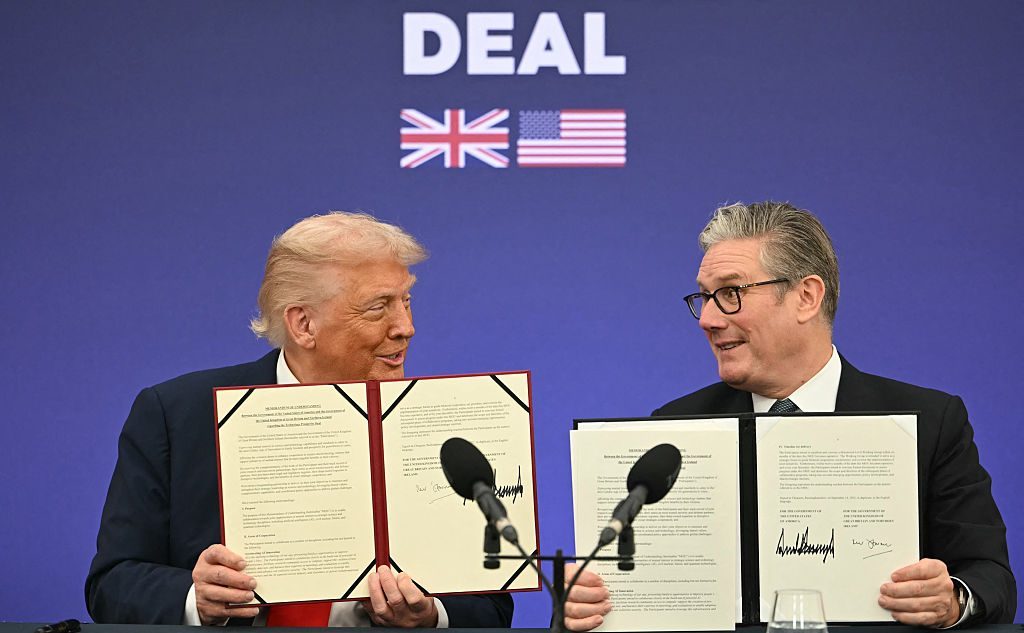Keir Starmer and Donald Trump this afternoon signed a new tech deal between their two countries, with £31 billion of investment set to be pumped into the UK from America. This is part of a broader £150 billion investment deal — or, more accurately, fire sale — in the UK economy by US firms, which the British Prime Minister has hailed as “blueprint to win this new era together”. But who is actually winning?
The UK is the world’s second-largest exporter of services, after the US. Software such as AI and hardware including data centres form the critical infrastructure for these services. In dominating British AI and data centres, the US will secure a significant slice of the UK’s earnings from global service exports through the licences and fees charged to UK businesses. Every time we want to access AI or store data, we will be paying primarily American companies for the service. It’s easy to see why Trump appeared so pleased at today’s press conference. As a result of this deal, the US will be “winning” a lot more of the income generated from Britain’s services sector.
However, the more the UK sells its critical service infrastructure overseas, the more revenue from that sector is going to flow overseas. Just look at Microsoft. The firm is at the core of this tech deal, providing 70% of the investment. In just three years, Microsoft’s UK revenue has increased by over 50% to nearly £10 billion, all while the firm has dramatically cut jobs. In future years, billions of pounds of profits will flow out of the UK back to its US parent company. Through Microsoft and Amazon, the US now owns 70-80% of cloud infrastructure services alone: it’s easy, relatively low-risk income.
We have seen this story before. In the same way that Britain’s domestic industry has been crushed through extractive practices within its utilities and transport infrastructure, we risk witnessing our services sector crushed through extraction in digital industries. Given the UK’s dependence on service exports to pay its way in the world, this should be a source of concern.
If the tech deal came in return for turbocharging the UK’s technological investment, it might be worthwhile. Yet that doesn’t seem to be the case. In 2023, foreign direct investment from the US in computer, electronic and optical products totalled £3.1 billion a year. This deal is roughly equivalent to that level of investment every year for the next decade. It comes in the context of UK business investment in information and communications technology that has grown at around 2.5% a year for the past 10 years. This is steady progression, but hardly enough to turn around a sluggish economy.
The UK remains a global innovator in computing. The world’s first quantum computer made from standard chips has just been switched on in Oxford. Yet Britain’s inability to raise its own domestic investment means that this innovation, like many others, will end up being sold to or dependent upon US investors. There will still be jobs in AI and technology based in the UK, but the clue is in the word capitalism: it is capital that directs investment and innovation in the economy, and it is the owners of capital who reap the benefits. It is not a serious economic strategy to trade ownership and control in the hope of short-term benefits in employment.
Nick Clegg, formerly of Meta, this week derided the deal as “sloppy seconds from Silicon Valley”, warning that the UK is becoming an American vassal state when it comes to technology. The truth is there to see, but the present government may take longer to cotton on.











Join the discussion
Join like minded readers that support our journalism by becoming a paid subscriber
To join the discussion in the comments, become a paid subscriber.
Join like minded readers that support our journalism, read unlimited articles and enjoy other subscriber-only benefits.
Subscribe